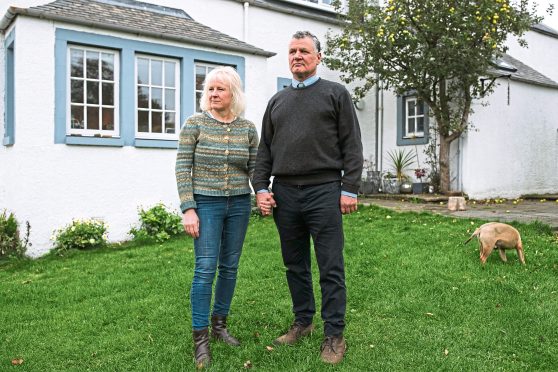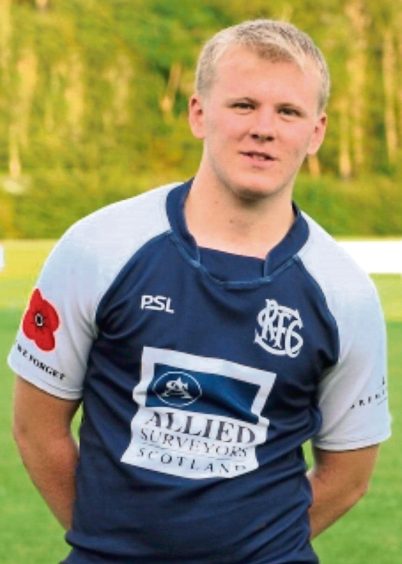
Scotland’s Children’s Commissioner Nicola Killean is calling for an end to young people being treated in adult psychiatric wards – as we reveal shocking figures showing 79 admissions last year.
The new commissioner is backing The Sunday Post campaign for change following the death of Harris MacDonnell.
He took his life four years ago rather than be sent back to the locked adult ward where he was “scared and traumatised” when he was just 16 years old. Killean said: “There will be children who need greater support and intervention. This must always be care that is appropriate to their age. They should not be sent to adult wards, which risks further trauma. A lack of timely access to support can seriously impact on children’s rights to health and development, and at its most severe, their right to life.”
Just 48 specialist beds exist for adolescents in Scotland – in Dundee, Glasgow and Edinburgh – plus a further six for under-12s. Campaigners warn there are no dedicated places specialising in autism. The Mental Welfare Commission say children should only be admitted to an adult psychiatric ward in “rare situations”.
But last year, we can reveal, there were 79 admissions. Half of those were for a week, and 15% were for five weeks or more.
Harris MacDonnell’s mother Jane, a consultant paediatrician, said no youth psychiatric bed was available after her son suffered a breakdown following an autism diagnosis.
Instead, Harris was sent to Huntlyburn psychiatric unit in the Borders.
Dr MacDonnell, who is calling for a Fatal Accident Inquiry to highlight the scandal, said: “Harris was so scared about being sent back to that locked adult psychiatric ward, he took his own life.”
Harris wrote an essay about his experience, which his mother has given to MSPs so they can understand the trauma he suffered. In it, the talented rugby player and musician said: “I’m not able to take this as my life. I’m not going around in this circle any more, in this place with these people.”
Harris was so desperate, he threw himself from a moving car driven by two psychiatric nurses, so he would be too injured to go back to Huntlyburn. It was only then that he was taken to a specialist young person’s unit.
Dr MacDonnell said: “Harris was highly intelligent, and he made it very clear, in his own words, how he felt being locked up in a place where he was terrified of the other patients, many of whom were suffering serious drugs and alcohol problems. That place was entirely unsuitable for a child, particularly a child with autism.
“Harris was so terrified about being returned to Huntlyburn, he climbed an electric pylon and took his own life. We must provide adequate numbers of age-suitable specialist units. If we don’t act, other children could be at risk. Harris must be the last child lost this way.”
Crisis point
Killean is calling on the Scottish Government to take a stance. She said: “There was a mental health crisis in Scotland before the pandemic hit, and it has only got worse with the cost-of-living increases.
“Children are aware of what’s happening in the world, and some have told us they feel a sense of hopelessness about the future. This all impacts on their mental health. Children and young people have also consistently told us that they need help before they reach crisis point.
“My office has a Young Advisers Group who help shape and guide the work we do. Last year, they became the first children anywhere in the world to lead an investigation using a Children’s Commissioner’s legal powers when they examined the provision of mental health counselling in schools. Their recommendations were presented to MSPs and are being considered by the Scottish Government and local authorities.”
Scottish Conservative shadow social justice secretary Miles Briggs said: “The Government must listen to experts and respond without delay to provide the dedicated mental health support your young people need and deserve.”
The Scottish Government said: “Whilst the vast majority of those referred to Child and Adolescent Mental Health Services (CAMHS) will be treated in the community, there may be times when it is necessary to admit them to hospital for specialist treatment. Where this is the case, they will generally be admitted to one of the three regional CAMHS inpatient units.”

Enjoy the convenience of having The Sunday Post delivered as a digital ePaper straight to your smartphone, tablet or computer.
Subscribe for only £5.49 a month and enjoy all the benefits of the printed paper as a digital replica.
Subscribe